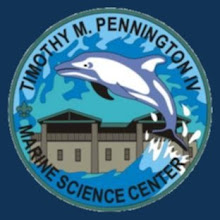Spring 2010 Aquarist / Marine Science Education Internship
Title: Aquarist / Marine Science Education Intern
Company/Organization:
Location: Camp Emerald Bay, Santa Catalina Island, CA. 33° 28' 08" N, 118° 31' 52" W
Duration: February 14 – May 31, 2010
Pay Rate: Room and board provided for the duration of the internship in camp style housing and dining facilities. Small travel stipend may be available.
Description: The
The job of aquatic animal keepers, also known as aquarists, is a physically active job. Besides the potential for SCUBA diving, other job duties include lifting boxes of frozen fish (50 lbs), climbing up and down stairs or ladders, bending over, carrying buckets of water, restraining and netting animals. Days are frequently spent standing on your feet and usually consist of feeding, monitoring, and otherwise caring for aquatic animals. Aquarists may clean, disinfect, monitor water quality, and design or build exhibits. Additionally, aquarists may keep records of feedings, treatments, and animals received or discharged.
As a staff member of the PMSC, you will be involved in many different aspects of aquarium operations including: animal care, record keeping, and facility maintenance. Through your participation, you will gain many specific skills, experience working with captive animals in an educational setting, and something new to put on your resume. If you choose to get the most out of working here you will have the knowledge of a basic aquarist; however, you will also gain a strong background in animal behavior, animal health and husbandry, public interaction, and be exposed to much more. Like most things in life, how much you get out of this experience will depend on how much you put in.
Aquarists have an extremely varied set of responsibilities, and therefore need an equally diverse range of knowledge and skills to do their jobs. The personal characteristics aquarists identified as being important for this profession also reflect this variety: self motivation, creativity, a willingness and ability to learn, resourcefulness, intuition, thoroughness, and the ability to work with others are just some of the key qualities that aquarists believe are important in order to do their jobs well.
With a job that includes tasks as distinct as maintaining proper lighting in an exhibit, diagnosing animal health, maintaining water quality, and building exhibits, aquarists must be comfortable using a wide range of tools. The list of equipment aquarists typically use includes: hand and power tools, ladders, and scaffolding; hazardous chemicals, epoxies, and glues; first aid equipment; fishing equipment and collection gear; plumbing equipment, lighting equipment, and pressure sprayers; and life support equipment.
During the spring, the Aquarist Intern assists the Marine Science Director in giving instructional tours to guests at camp, aquarium maintenance and operations, development of current and future educational curriculum, and all aspects of maintaining a healthy, diverse aquarium. The intern may also be required to teach classes in marine sciences. The intern must have a strong scuba background since they will be assisting on many specimen collection dives.
One intern will be competitively chosen on the basis of knowledge, abilities, experience, attitude, reliability, punctuality and recommendations. We recommend contacting your registrar’s office in order to earn college credit for this internship. Preference will be given to those who can stay for the duration of the internship. The intern will work on a research project of their choice and report the results by the end of the internship.
Drug Testing: PMSC staff must understand that if they are involved in a workplace accident or it is determined by their supervisor or the camp director that there is a reasonable suspicion that they are under the influence of alcohol or illegal drugs, the intern may be subject to saliva drug testing.
If interested, please contact the Marine Science Director by email or phone for an application.
Applications are due by Friday, November 13, 2009.
_
Requirements: A successful applicant will possess the following:
-Undergraduate, graduate student or recent graduate in/with a related degree.
-SCUBA certification. Must own mask, fins, and booties. All other gear is provided. The more experience the better.
-Strong writing skills and organization.
-Mechanical aptitude / willingness to work with your hands.
-Strong background in record keeping with Microsoft Excel.
-Interest in marine aquaria, marine conservation, and the teaching of marine science.
-Ability to work with a variety of people in close quarters for long hours as well as independently.
-A sense of adventure.
_
Contact: Kevin Erickson, KErickson@BSA-LA.org
Marine Science Director
1-310-510-1795 ext 36




No comments:
Post a Comment